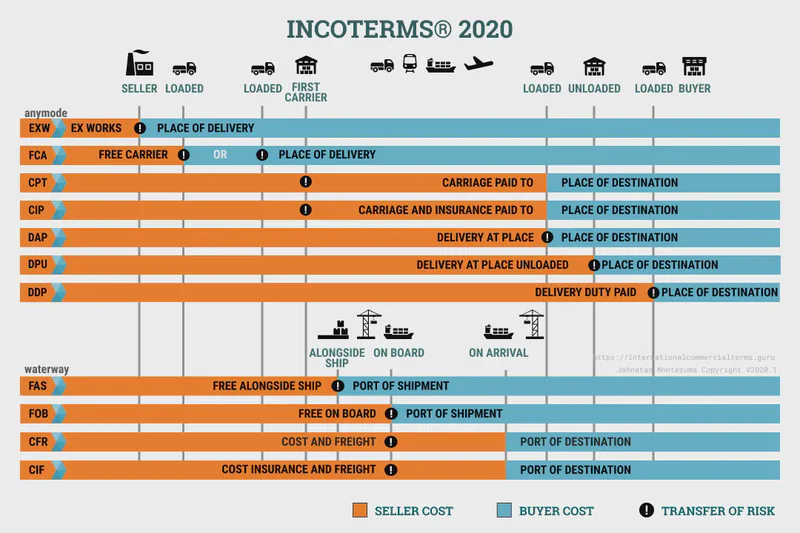Title here
Summary here
Understand and apply Incoterms 2020 with our comprehensive guides, practical examples, and expert insights. Trade with confidence.

Each of the Incoterms has practical examples based on real-life scenarios.
Know the most common delivery points for each term. Visualize where goods are handed.
Our table of charges show if buyer or seller are responsible of most common charges.